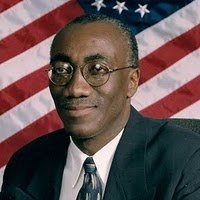by Reynold N. Mason JD
Atlanta April 5, 2011
The House Immigration Policy and Enforcement Subcommittee held a hearing Thursday to discuss possible reforms to the H-1B visa program. While businesses claim they use H-1B visas to sponsor “high-skilled” workers, H-1B visa recipients are typically only required to have either a Bachelor’s degree or specialized knowledge in a particular field. H-1B visas are also used to bring fashion models into the country
Dr. Ron Hira, who teaches public policy at the Rochester Institute of Technology, discussed the many flaws in the H-1B visa program during his testimony. According to Dr. Hira, H-1B visas displace and deny opportunities to U.S. workers: “loopholes in the program have made it too easy to bring in cheaper foreign workers, with ordinary skills, who directly substitute for, rather than complement, workers already in America.” He also discussed loopholes in the program that provide an unfair competitive advantage to businesses that outsource jobs overseas. Hira stated nearly all of the employers receiving the most H-1B visas in the last five years are using them to offshore tens of thousands of high-wage American jobs. “Off-shoring through the H-1B program is so common that it has been dubbed the ‘outsourcing visa’ by India’s former commerce minister,” Dr. Hira added.
While members of the Subcommittee agreed with one another that the H-1B visa program needs reforming, they disagreed on the direction such reform must take. Rep. Lamar Smith (R-TX) called for either increasing the H-1B visa allotment or tightening the requirements for qualifying for the visa. “The 65,000 base annual quota of H-1B visas is going to come under more and more pressure as the economy improves. If Congress doesn’t act to increase the H-1B cap, then we may need to examine what sort of workers qualify for H-1B visas,” he said in his opening statement. Rep. Smith also questioned whether the safeguards built into the H-1B program are sufficient to protect American workers. Citing a recent GAO report, he asserted, “H-1B employers categorize over half of their H-1B workers as entry level—which is defined as ‘performing routine tasks that require limited, if any, exercise of judgment’—and only six percent as fully competent.” Rep. Smith described national security concerns about the H-1B program. According to recent GAO findings, he said, the U.S. government has awarded H-1B visas to over one million foreign nations from 13 “countries of concern.” Finally, Rep. Smith expressed concerns over the “legacy of fraud” taking place in the H-1B program. At hearing over a decade ago, he said, witnesses discussed fraud in the program such as petitioning companies being nothing more than an abandoned building or fake address, yet roughly 10 years later in 2008 USCIS’s Office of Fraud Detection and National Security found outright fraud in over 13% of randomly selected cases, he asserted.
Several Subcommittee members argued that instead of expanding the H-1B program, the U.S. should increase the number of legal permanent residents (green card holders) the government admits each year. Rep. John Conyers (D-MI), the ranking Democrat on the Judiciary Committee, argued that admitting individuals as green card holders is preferable to H-1B guest workers because H-1B recipients are unable to stay in the country permanently or move from job to job. “What we need are more green cards,” said Rep. Conyers. “Staple a green card to a national graduating certificate when he graduates from an engineering school. You would then relieve the problem of most of them ending up going back home to become our competitors when most of them...really wanted to stay.” Rep. Zoe Lofgren (D-CA), the ranking Democrat on the Immigration Subcommittee, also advocated increasing the annual allotment of green cards. According to Rep. Lofgren, the primary problem with the H-1B program is that it only permits workers to stay in the U.S. temporarily: “[T]he real issue … is how can we capture with permanent visas the individuals who we want to keep to create companies, to do start-ups, to create jobs for American workers,” she stated. “Europe, Australia, Canada, and even China and India are changing their laws and rolling out the welcome mat providing permanent visas and citizenship to some advanced degree holders. We must do the same or risk being left behind.”
Other members of the Subcommittee argued that the H-1B program should be restricted or eliminated entirely. Rep. Steve King (R-IA), the Vice-Chair of the Subcommittee, argued for lowering the number of H-1B visas. “There is such a thing as too much legal immigration,” King said. “Too much legal immigration also drives down wages and oversupplies in the workforce. And we are in a precarious position here in this country,” he said.
*****My thanks to FAIR for the use of their legislative updates in preparation of this article
MOBILE VERSION CLICK HERE

Some think the solution is to issue more green cards
6335 views
Other news
Showing now
Immigration subcommittee divided over H-1B visas

Source: Reynold Mason
Tuesday 05 April 2011








